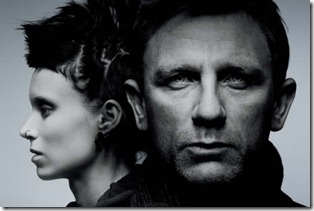
This article explores the controversial product placement of Apple in the recent adaptation of Stieg Larsson's "The Girl with the Dragon Tattoo".
Prior to my recent movie experience, I was blissfully ignorant of the purported deficiencies of Apple notebooks. To be exact, the film appears to suggest that they could be among the most poorly engineered notebooks in existence. These were my thoughts as I walked out of the theatre, the echoes of the movie still lingering.
The financial cost to Apple for this product placement in "The Girl With The Dragon Tattoo" remains unknown. The film is a fresh offering from David Fincher, graced with performances from Daniel Craig and Rooney Mara, and set to the haunting tunes composed by Trent Reznor. However, the product representation in this film may be one of the most egregious I've ever witnessed.
To begin, believe it or not, the movie seems to imply that Apple MacBook Pros have a near-monopoly on the Swedish market. Indeed, it may remind you of the widespread use of Sony Ericsson mobile phones in Daniel Craig's other famous movie, "Casino Royale," even boasting capabilities that the real-world devices can only dream of.
Midway through the film, the protagonist's computer abruptly fails, the repairman declaring data recovery impossible. Is this what users should expect from their Apple MacBook? To replace her MacBook Pro, she embarks on a perilous adventure, rather than conveniently utilizing the warranty. Does the movie accurately portray the struggles of dealing with Apple's warranty system?
As an aside, the film does accurately represent the irretrievability of data from a MacBook Air. However, it's worth noting the faulty device in the film wasn't an Air model.
The third “fact” gleaned from "The Girl With The Dragon Tattoo" is that MacBooks are easy to hack. In the original book, Lisbeth Salander (the titular 'Girl') is portrayed as Sweden's preeminent hacker, with detailed accounts of her exploits. However, the film fails to highlight this crucial aspect of her character. Instead, we observe a punk girl seemingly breezing through MacBook security systems.
"But the files are encrypted!" one character protests, only to be dismissed with a casual, "Please…" Is the movie implying that the encryption within MacOS is deficient or even nonexistent?
Shifting gears, Stieg Larsson himself was an avid Apple fan, and his trilogy is peppered with Apple devices. However, the books manage to integrate these elements seamlessly into the narrative without the overt product placement that plagues the movie.
This adaptation, coming only three years after the original Swedish film, seems to have a single-minded goal: to serve as a drawn-out, insipid advertisement for Apple and Volvo.
I won't delve into the critique of the movie itself, as my experience was undoubtedly colored by my prior reading of the book. Suffice to say, the performances and music were noteworthy, yet the film might leave you underwhelmed if you've read the book. Or, perhaps, if you happen to be a MacBook owner.